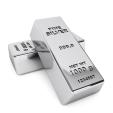Europe central banks commit to hold gold
Frankfurt (May 19) High quality global journalism requires investment. Please share this article with others using the link below, do not cut & paste the article.
Gold bulls received a boost on Monday as European central banks renewed a five-year agreement by committing not to sell “significant” amounts of the precious metal.
Under the current Central Bank Gold Agreement, which expires in September, the eurozone countries plus Sweden and Switzerland pledged not to sell more than 400 tonnes of bullion from their combined holdings each year. The new deal reaffirms a commitment to bullion as a monetary reserve but drops the quotas – a recognition of European governments’ lack of interest in offloading gold.
High quality global journalism requires investment. Please share this article with others using the link below, do not cut & paste the article.
In a statement, the central banks said they would “continue to co-ordinate their gold transactions so as to avoid market disturbances”.
“The signatories note that, currently, they do not have any plans to sell significant amounts of gold,” the banks added.
Established in 1999, the CBGA was designed to reduce the volatility in the gold market caused by large sales by central banks, including the UK Treasury, which dumped half of its reserves earlier that year, sending prices lower. Sales under the agreement peaked in the year ending September 2005 at 497 tonnes. But over the past five years, European central banks sold just 23.5 tonnes of gold – mainly for minting gold coins – out of a possible 2,000 tonnes, according to the World Gold Council.
Analysts said the low sales had made the annual limits irrelevant, and that the central banks’ stated commitment to maintain their reserves sent a stronger signal at a time when prices were low.
“It offers some comfort to the market, which appears to be taking the news well,” said Joni Teves, precious metals analyst at UBS.
Gold fell 28 per cent last year following a large sell-off by western investors in the exchange traded funds. The current price of $1,300 a troy ounce – up 0.6 per cent for the day – is still 32 per cent lower than the 2011 peak of $1,920 an ounce.
Natalie Dempster, managing director for central banks and public policy at the World Gold Council, said the new agreement was “extremely positive news for the gold market”.
“For the foreseeable future, the message is very clear: European gold sales are over,” Ms Dempster said.
Members of the CBGA own around 11,000 tonnes of gold, more than third of total official sector holdings. Over the past four years, central banks globally have been net buyers of gold, with purchases totalling 368.8 tonnes in 2013.
The agreement will be reviewed in 2019.













